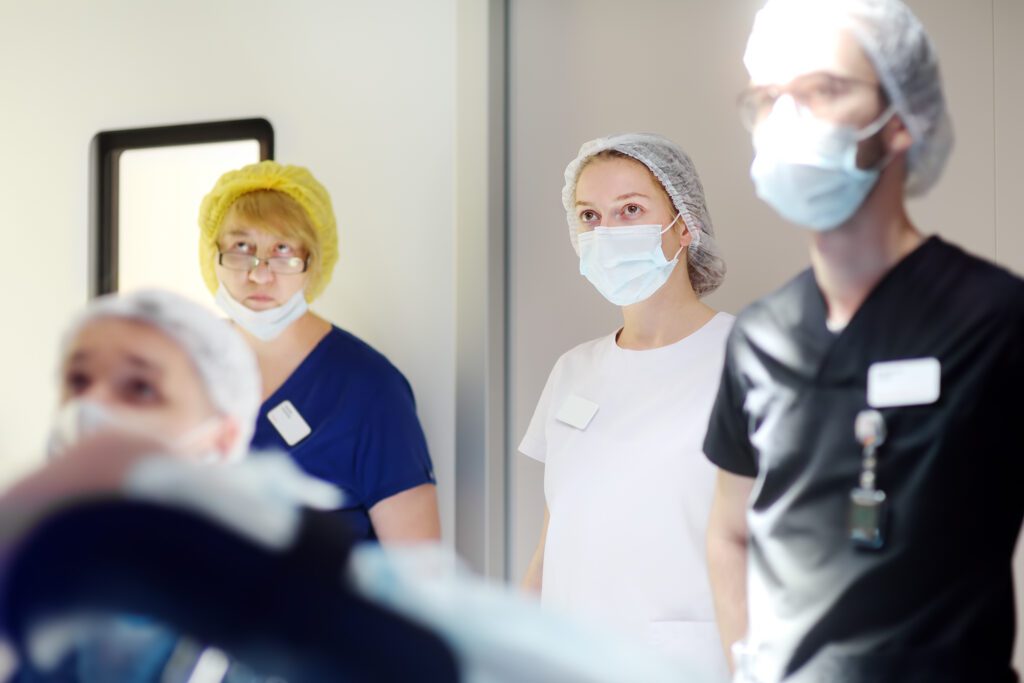Taking a Gap Year During Medical School: The Ultimate Guide
- by
- Apr 13, 2023
- Reviewed by: Amy Rontal, MD

If you’re tinkering with the idea of taking a gap year after medical school (or even forced to take one), then this is the article for you. This post aims to explore considerations, strategies, and suggestions prior to pursuing a gap year before residency.
With this information and a game plan in place, you can more confidently navigate this stressful period of your professional journey.
Why Do Medical Students Take Gap Years?
Common Motivations
As a medical student, there is a good chance that more than a few of your classmates had a year or more between finishing undergrad and starting medical school. The reasons for taking this gap year may vary, as some require the time off to:
- – Strengthen residency applications
- – Retake failed clinical rotations or exams
- – Form an action plan after failing to match
- – Conduct and publish research
- – Gain much-needed work experience.
Perhaps others used the time off to travel, take care of a loved one, or had a different personal intention. Usually, the decision for a gap year is made by an individual because having a year off between school and training is seen as a necessity.
The most valuable thing a gap year provides you is time. Use it to sample new experiences that can enrich your professional and personal life. Develop a novel set of skills, take care of your physician or mental health, network and build relationships.
Statistics and Trends
At the turn of the century, gap years after medical school gained popularity due to the increased competitiveness and rising demands of medical training.
Since the early 2000s, there has been an increasing trend towards taking an elective gap year, particularly among the competitive “ROADS” specialties—radiology, ophthalmology, anesthesiology, dermatology, and surgical subspecialties.
Furthermore, recent graduates often finish medical school feeling burned out and opt for a break from the rigors of medicine. This is particularly true of applicants in recent years who were on the wards during the height of the pandemic.
Disadvantages to Consider
As you continue through the post, recognize that the conventional path to attending-hood is a straight shot—undergrad on to medical school and then residency, no breaks in between. This “traditional applicant” is the preferred residency candidate and the conventional path is still the ideal route for the majority of U.S.-based medical graduates.
In general, residency program directors realize that extended time away from medicine can result in a loss of clinical skills, making it that much harder for a trainee to get back into the world of medicine.
However, programs also understand that applicants may have extenuating circumstances that warrant time off before starting their careers. Keep that in mind as you read on to explore the various experiences a gap year before residency can offer.
How to Take Advantage of a Gap Year Before Residency
Pursue research opportunities.
Students, by and large, take a gap year for research. If you’re especially interested in research or if you want to match into a nationally ranked academic institution, having quantity and quality research publications is pivotal.
Clinical research also helps to bolster your resume. Naturally, you want to look for the right qualities in a research fellowship—namely that the research activity aligns with your goals. After all, when you interview for residency or an introductory consulting position, or for a job in biotech, having a coherent theme in your publications that position alongside your passions will distinguish you amongst your peers.
To get started on a research project, you will first need to find a mentor or PI—principal investigator. Criteria vary but generally, look for the following qualities in your PI (and find more information in this post about how to get involved in research as a medical student):
- – Prolific – They have had various publications over the past decade with academic peer-reviewed journals
- – Responsive – They do not take weeks to answer emails or is not away from his/her lab for weeks at a time
- – Has aligned interests – Publication takes a lot of work, often involving potentially hundreds of hours of effort. Thus, you and your PI should see it as a big deal. Make sure it is something you are interested in and advances your career whether you’re in a lab doing cell cultures or editing epidemiology papers or designing bio wearables at the intersection of healthcare and technology
- – Has adequate funding – This ensures you can be compensated, or at the very least your project has the funding necessary to move forward. Publishing in top tier academic journals isn’t cheap.
Keep in mind that some residencies have research time built in, often in the form of research electives that can last months to a year. If your desired program allows and you remain interested in research, share your research interests and projects to see if it can be continued at the institution—or if there is something in a similar realm.
Consider a secondary degree.
At this point in our careers, you would think most medical students are tired of school. There are a select few who actually opt for more schooling to obtain a secondary degree. The most popular of which are the MBA or MPH (Masters of Business Administration and Public Health, respectively).
As each coveted residency spot becomes increasingly competitive and the field of healthcare expands, these applicants seek additional degrees in order to differentiate themselves and broaden their horizons. Furthermore, future physicians who plan to manage and operate their own practices need more than just medical knowledge to care for their patients. They also require entrepreneurial know-how such as managing and finance to ensure their success.
Schools around the country are meeting their students’ aspirations by partnering with business and public health institutions to offer combined MD/MBA or MD/MPH programs. These offerings not only produce more competitive applicants but also provide career opportunities in niche fields such as medical administration, public health, or policy.
However, it is important to understand that a second degree is not meant to replace any of the core tenants of your residency application. If you had repeated attempts on a USMLE exam only to scrape by with a minimally passable score, an MBA or MPH will not be your golden ticket to the residency program of your choice.
Pursuing a secondary degree should be done primarily out of interest as there can be significant associated costs such as program tuition and time. For example, the average cost of obtaining an MBA degree is around $70,000 in 2023, not to mention that it is competitive and difficult to gain acceptance.
Participate in service or industry programs.
Instead of paying tuition for an extra degree, why not build your application and get paid to do so? Taking a year off and going into a service program can be very rewarding. Some programs are hosted by the U.S. government, some by non-profits. Though immensely competitive, consider programs such as the Fulbright Program, which partners with over 100 countries worldwide.
The Fulbright U.S. Student Program provides opportunities in academic disciplines to passionate and accomplished young professionals from all backgrounds. From their website:
Doctors of Medicine may receive grants for advanced academic study, but not for internships or residencies. Scholars with an M.D. degree who have completed their formal postgraduate training and propose attachment to a hospital or clinic for the purpose of independent or collaborative research should apply to the Fulbright U.S. Scholar Program.
Other, more accessible programs include Teach for America, Peace Corps, National Civilian Community Corps, City Year, or a study abroad program. These experiences will be transformative but are not for the faint of heart as they are considerable time commitments.
Another method to earn experience and a paycheck is by taking a job in industry. Consider a healthcare startup or consulting firm. If you have a business or technology interest or background, these companies seek out medical school graduates and preferentially hire.
A friend of mine from school spent her MS2 electives at a summer coding boot camp. She did well and received a competitive job offer from one of the Silicon Valley tech giants and quit medical school altogether. She’s doing very well for herself! Common industries where a medical degree (MD or DO) is useful are pharmaceuticals, consulting, and biotech.
If you’re an IMG who must take a gap year…
Aside from the elective motives, some graduates take a gap year out of necessity. Often cases include international medical graduates. The match rate for IMGs was about 58% during the 2022 Match cycle. Despite having the best match season yet, nearly half of IMGs go unmatched in their first application cycle. Compare that to over 90% match rating for U.S.-graduated MDs and DOs.
If you didn’t match as an IMG and want to reapply the following year, you must utilize the time in between cycles to improve your application.
Recommended methods are to increase the amount to USCE (U.S. clinical experience). This is particularly true if you can obtain a longitudinal clinical experience with a mentor who can write you a personalized letter of recommendation and speak highly on your behalf during the application process. With these appointments, you get meaningful, first-hand clinical experience in working with other healthcare professionals, and some are even paid.
If you failed to match, failed a term, or failed the board exam…
According to the NRMP data over the past decade, anywhere between 5-9%% of US graduating medical seniors failed to match into a program. These applicants will take a gap year out of necessity and reapply next year.
By using this time to reinforce their resumes with clinical and volunteer activities, research experience, and/or a higher score on USMLE or COMLEX, the applicant should return the next year as a much stronger candidate.
Don’t forget that interview preparation and skill are just as important to secure that residency spot. If you need help check out this post: How do you know if you need residency counseling?
For those who failed a term in medical school and need to remediate that or failed a national board exam, use the time off to study, while improving on other aspects of your application to make up for this mistake. Take time to analyze and review your previous study weaknesses, as it is not enough to just study more.
You need to think about and address your past mistakes and habits that led to the initial failure. It’s tough, but working on that will likely yield the best results. If you need some guidance on how to most effectively review for USMLE or COMLEX consider the post “Do You Need a Tutor in Med School?”
How to Approach Your Gap Year with a Healthy Mindset
Regardless of why you are taking the gap year, be sure to take something positive away. Note that this is different from the suggestions above and not a reason to take a gap year, but rather something more to get out of your year away from medicine.
- Reflect on why you chose medicine. Use your time to ponder your career to the present moment. Think about how you got this far and what is keeping you interested. Doing so can help you begin drafting your personal statement.
- Build healthy habits. Medical school is demanding, and some habits such as keeping a clean household or regular exercise may have fallen to the wayside. A gap year is a great time to rebuild healthy habits such as eating right, getting adequate sleep, and keeping up with your social circle. Make these part of your routine and carry them into residency.
- Volunteer! There are so many ways to volunteer and so many worthy charitable causes that need help. Think carefully about what interests you and how you want to make a real impact. You do not need to select an opportunity related to medicine just because it will look better on the CV. Any volunteerism activity will help the CV, especially if you’ve pursued a volunteer activity with your own unique purpose and interest. Go coach a little league team or lead a guided tour of the Grand Canyon. Either way, just have fun with it!
- Do something unrelated to medicine. I know, I know—you want to be a doctor. Still, the more interesting doctors I know have well-cultivated hobbies. Pursue something creative and remember to take mental and physical breaks to recharge. Get back into your hobbies. Ultimate frisbee, rock climbing, backpacking, travel and cooking are some of mine. Go find your own.
With med students often having high-achieving and competitive personalities, it’s all too easy to view gap years as some sort of personal failing. Don’t allow yourself to fall into that mindset! No matter your reason for taking this breather, it’s important to approach this time as an opportunity—not a defeat.
Wrapping Up
Before embarking on your gap year, have a defined plan to ensure that you are intentional about what you expect to get out of your year off. Keep in mind your interests as well as your strengths and weaknesses as an applicant.
The point for this time away is to ultimately improve your skills and make you a more competitive applicant. Maybe you’ll find a new way to experience your gap year than those listed above. If so, I’d love to hear about it.
About the Author
Mike is a driven tutor and supportive advisor. He received his MD from Baylor College of Medicine and then stayed for residency. He has recently taken a faculty position at Baylor because of his love for teaching. Mike’s philosophy is to elevate his students to their full potential with excellent exam scores, and successful interviews at top-tier programs. He holds the belief that you learn best from those close to you in training. Dr. Ren is passionate about his role as a mentor and has taught for much of his life – as an SAT tutor in high school, then as an MCAT instructor for the Princeton Review. At Baylor, he has held review courses for the FM shelf and board exams as Chief Resident. For years, Dr. Ren has worked closely with the office of student affairs and has experience as an admissions advisor. He has mentored numerous students entering medical and residency and keeps in touch with many of them today as they embark on their road to aspiring physicians. His supportiveness and approachability put his students at ease and provide a safe learning environment where questions and conversation flow. For exam prep, Mike will help you develop critical reasoning skills and as an advisor he will hone your interview skills with insider knowledge to commonly asked admissions questions.









